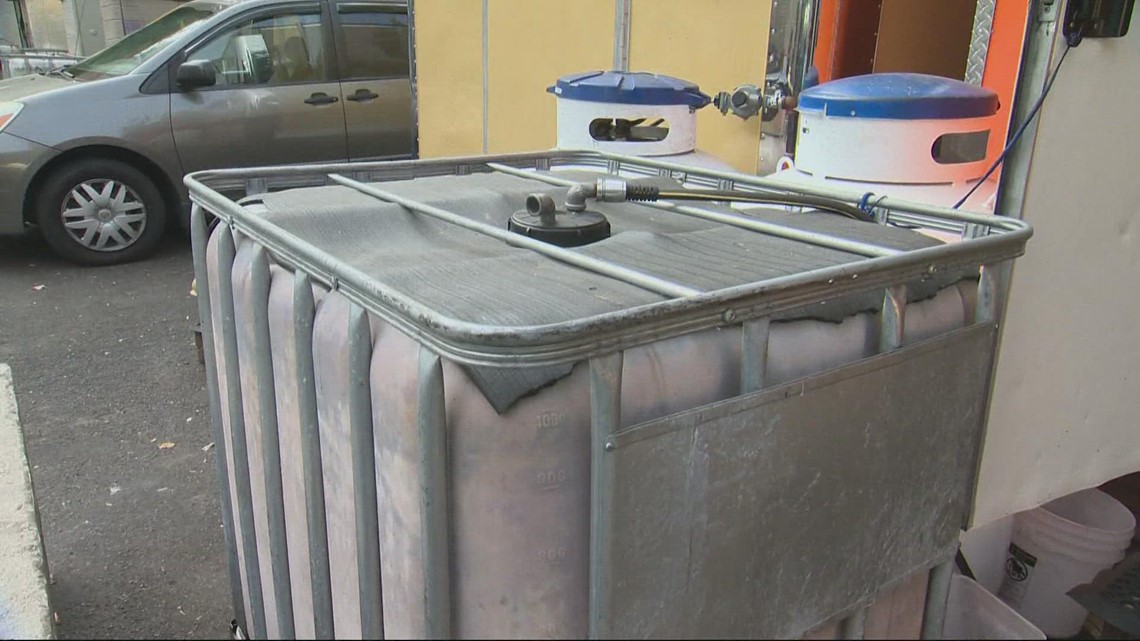PORTLAND, Ore. — The start of the new year brings with it the start of new rules and laws, and one of this year's local updates involves Portland’s very popular food carts.
Multnomah County is now requiring local food cart owners to meet a new set of standards for managing the wastewater generated by their cooking and dishwashing operations.
There are two main options for food truck owners: Either connect their pods directly to a sewer line or have their external wastewater collection "cubes" pumped our regularly.
Fillibarto Saldana, who runs La Piñata Takos in the pod on Southwest 3rd Avenue, told KGW that he gets his wastewater cubes pumped out at least three times a week, at a cost of about $60 per pumping, which adds up to more than $700 per month.
The high cost of compliance impacts his monthly bottom line, he said, but he knows it's something he has to pay for.


Last fall, Jeff Martin with the Multnomah County Environmental Health Department told KGW that food cart wastewater debris is full of food scraps that can attract rodents if it's not properly dealt with. It can also get into storm drains and impact the Willamette River.
At another pod along Northeast Alberta Street, Mole Mole co-owner Brenda Flores said she's thankful that her pod is connected to the sewer, and that the direct connection is less of a mess and less of a headache.
"It also gives us more space because you’re taking away a cube of dirty water, and it doesn’t look pretty," she said.
Cart operators who don't get their wastewater cubes emptied out on a regular basis could face a fine or be forced shut down by the county, although it’s not yet clear exactly how of often they'll need to be pumped.

